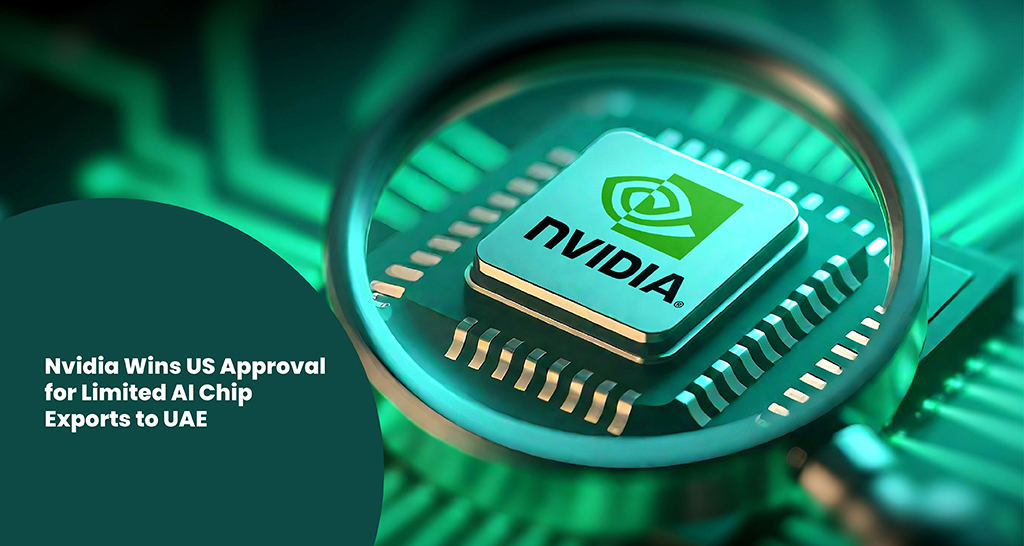The United States has given the green light for certain Nvidia chip sales to the United Arab Emirates, which is a significant step forward in the growing tech partnership between Washington and Abu Dhabi. This approval opens the door for the Gulf nation to bring in cutting-edge artificial intelligence (AI) processors, all part of a larger framework for bilateral AI cooperation that was signed earlier this year.
It looks like the U.S. Department of Commerce has given the green light for Nvidia to export AI chips worth several billion dollars to the UAE. This decision comes after months of discussions in Washington, weighing the national security concerns tied to advanced chip technology and the UAE’s expanding ties with various global powers.
As part of the AI partnership announced earlier this year, the UAE is set to pour significant investments into data centers and supercomputing infrastructure to boost its domestic AI capabilities. In exchange, the UAE will also invest in U.S. infrastructure and tech ventures, which will help to strengthen their economic ties.
The agreement is said to allow the UAE to import up to 500,000 of Nvidia’s top-tier AI chips each year, starting next year and possibly continuing into the next decade. These chips are set to play a crucial role in the UAE’s ambitions to become a regional powerhouse in artificial intelligence, data analytics, and autonomous systems.
The recent move reflects the U.S. intention to strengthen its strategic ties with Gulf economies by fostering partnerships in technology and innovation. Washington is actively urging its regional allies to build AI infrastructure with American technology, all in an effort to counter the increasing influence of China in the global AI landscape.
For Nvidia, this move clears a major regulatory hurdle that had been holding up their entry into one of the fastest-growing markets for high-performance computing. The company has been collaborating closely with local governments to broaden its presence in the Middle East, aiming to establish itself as a key player in AI-driven digital transformation initiatives.
While the approval process has faced its fair share of hurdles, U.S. officials are taking a careful approach. They want to make sure that the chips are used only for their intended purposes and aren’t re-exported or handed off to other parties. National security agencies have stressed the need for strict end-use monitoring and compliance, especially considering the advanced features of these chips and the potential risks they pose for dual-use.
Industry analysts suggest that this approval strikes a careful balance between seizing economic opportunities and exercising geopolitical caution. It not only aligns with the U.S. aim of preserving its technological edge but also showcases a practical strategy for bolstering alliances in regions that are crucial for global energy and innovation supply chains.
For the UAE, gaining access to Nvidia’s state-of-the-art chips is set to supercharge its AI goals. The nation has already poured significant resources into its national AI strategies, research centers, and supercomputing capabilities. With these new approvals, it will be able to broaden its AI research across various sectors, including energy, defense, healthcare, and finance.
In the long run, this partnership could really change the game for technology diplomacy between the U.S. and the Gulf. As AI continues to grow as a major force in both economic and strategic arenas, this approval shows that advanced chips are becoming more than just tools for innovation they’re also key players in foreign policy and global competition.
